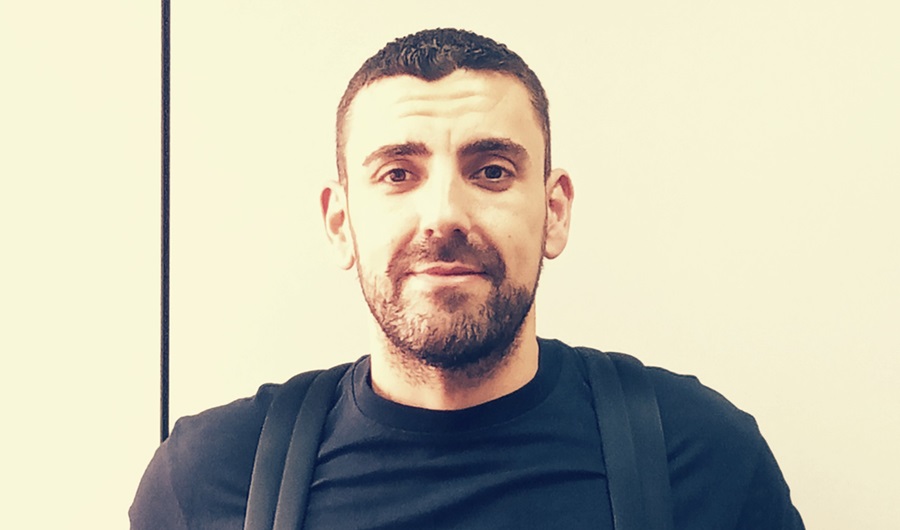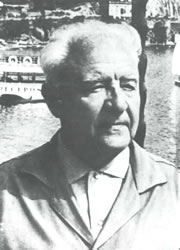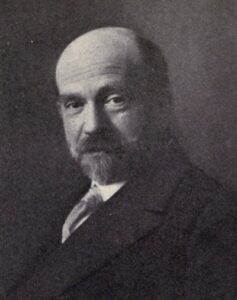- HistoryHumanities
- 16 de May de 2024
- No Comment
- 21 minutes read
The same thing is happening to Spanish historiography as to the university

Interview with Francisco Fuster, specialist in Camba, Baroja, Azorín y Gaziel
“The same thing is happening to Spanish historiography as to the university”
There is a recurrent generational conflict


Francisco Fuster García (1984) is an Associate Professor of Contemporary History at the Universitat de Valencia. Esteemed for his expertise in the Spanish Silver Age literature, he has recently edited Gaziel’s Pláticas literarias, the seminal work of the distinguished Catalan journalist who made his mark in the newspaper La Vanguardia from 1914 to 1936, published by the Banco Santander Foundation. The volume presents essays on both classic and contemporary European writers such as Marcel Proust, Luigi Pirandello, Paul Valery, and Chesterton, alongside meditations on Catalan and Spanish literary figures. Fuster’s recent publications include Julio Camba. Una lección de periodismo (2022), Baroja y España (2022), Introducción a la Historia (2020), Baroja en París: Guerra Civil y exilio (2019) o Aire de familia. Historia íntima de los Baroja (2018).

Who was Agustí Calvet, better known as Gaziel? Or, to put it in another way, what was he? Have you managed to ascertain this? Does anyone truly know?
Indeed, it is fairly well-documented. Agustí Calvet (1887-1964) was the second son of a bourgeois family from Sant Feliu de Guíxols (Girona), which settled in Barcelona in the late nineteenth century. He studied Philosophy and Literature with the aspiration of becoming a university professor. In 1914, he undertook a journey to Paris to prepare for competitive examinations, but he had to return to Barcelona with the onset of the First World War. Upon his return, La Vanguardia published a series of articles based on the notes he had taken in Paris during the early weeks of the war. This series, entitled “Diario de un estudiante en París”, was a considerable success leading Gaziel (the pseudonym he had adopted shortly before, used to sign his articles in the press) to become a war correspondent and later a journalist. He eventually rose to become co-director and then sole director of La Vanguardia, a position he held until the Civil War forced him into exile. In 1940, he returned to Spain, settling in Madrid, and from the 1950s onwards, he wrote a body of literary works in Catalan, including a diary, a couple of memoirs, and several travel books.
Do you agree with this statement by Gaziel, regarding Anatole France: “When human intelligence reaches such a degree of scepticism, i.e., a capacity for critical examination, it acts like a scorching wind of illusions” (p.79)? Could he have been reflecting on his own experiences?
In all of his writings, Gaziel consistently reflected on his own intellectual position, viewing himself as an intellectual au-dessus de la mêlée. He was a highly educated individual who, beyond university education, had worked at the Institut d’Estudis Catalans and was a self-taught reader. He was a Frenchified bourgeois liberal, with a cultural level far above the norm. Despite his profound humanism, his scepticism was shaped by the First World War, which had a profound effect on him, and the Spanish Civil War, which fostered a deep mistrust of humanity. Like Stefan Zweig, he belonged to the “world of yesterday” that ceased in 1914. As a committed European and Europeanist, the interwar period and the rise of totalitarian regimes made him wary of the masses and their role in politics. He had an elitist view of society that, in some ways, aligned him with Ortega y Gasset.
Which of Gaziel’s essays in Pláticas literarias do you consider to be the most significant and why?
I am particularly fond of the first essay, even though it’s not a literary critique in the strictest sense. When King Lear was staged at the Teatre Romea in Barcelona, Gaziel attended the premiere and penned a chronicle that brilliantly employed microsociological analysis to elucidate the spiritual elevation evoked by the Shakespearean drama, contrasting this with the provincialism of the petty bourgeoisie from Barcelona occupying the theatre’s seats. There are excellent critiques where he employs the Orsian technique of moving “from the anecdote to the category”.
“His specialty, I would say, lies in using any new book as a pretext to discuss not just that particular title, but the entire author’s work”
His specialty, I would say, lies in using any new book as a pretext to discuss not just that particular title, but the entire author’s work. This approach transforms Pláticas literarias from a mere anthology of book reviews into a genuine course in literature, featuring some masterful lessons on Catalan, Hispanic, and universal literature.
Gaziel has undergone a significant recovery and restoration process in recent years, somewhat akin to Manuel Chaves Nogales. What led you to the decision to edit his literary review?
Indeed, Gaziel has been reevaluated recently, yet he still falls short of the stature currently held by Chaves Nogales in literary canons and bookstore displays. Many titles by Chaves have been published, including his complete works in several volumes. In contrast, there have been isolated editions and reprints of Gaziel’s work, but no publisher has really taken a significant risk on him. This is evidenced by the fact that many of his books have not been republished for many years. Not to mention others that have never been translated into Spanish, making them practically unknown to readers outside of Catalonia. The decision to edit his literary criticism was motivated by two main reasons. Firstly, it was a part of his work that remained unpublished in book form and had not yet been compiled. Secondly, I believed this anthology could serve as an excellent entry point for many readers to discover him for the first time. While Gaziel is known for other works, this are either only available in Catalan or are out of print and difficult to access. These works are more challenging for the reader and may be preserved for a later reading. If you want to win over a reader, it is essential not to deter them from the outset; rather, the author should present them in small doses, allowing the reader to sample the work before committing to a full read. Should the reader be pleased with the initial offering, they will be the ones to seek out further works by the same author.
“While Gaziel is known for other works, this are either only available in Catalan or are out of print and difficult to access”
Why would a historian like you devote yourself to the literature of the Spanish Silver Age? Are you a radical Chartierian?
(Laughs) I would not go that far. Indeed, Chartier’s work is not limited to an analysis of the content of texts, but also encompasses an examination of the context in which they were produced, distributed, and consumed. He examines the materiality and the forms, which is something that interests me too, although not as much as he does. I devote myself to the Silver Age because I am a contemporary historian and because I am interested in the history of culture, not just literature. Had I been a medievalist or an early modernist, I might have focused on the Golden Age, but I am more attracted to the 20th century and, within this chronological sphere, the most outstanding cultural period is undoubtedly the first third of the century. I think it was a period when, despite Spain’s backwardness, a remarkable culture emerged as a a result of the efforts of men and women who, with infinitely fewer resources than we have today, managed to reintegrate the country into the international sphere. In a 1998 interview, on the occasion of the centenary, Cela was asked what lesson we could learn from the men of ’98: “That they worked hard”, he said bluntly. I could not have summed it up better.

What does Pío Baroja mean to you?
I discovered Baroja when searching for a topic for my doctoral thesis, so my approach to him was somewhat fortuitous. I knew I wanted to explore a particular period with a fairly clear approach in mind, but I was unsure which Spanish author or work would serve as a good starting point. Reading El árbol de la ciencia made me choose that novel as the subject for my thesis. The rest came later… In order to write the thesis, I had to read a lot of Baroja and there I discovered a writer of raison d’être, whose way of being and thinking is attractive to me, not because he resembles mine, but because he was a heterodox writer who liked to live a little against the grain. After nearly fifteen years of engagement with his work, he has become a part of my life, for better or worse. When I need a break, I might set his work aside to read or write about other authors, yet I never lose sight of him. For those of us who are Barojians, as Azorín once said, Baroja represents a “safe place”—a refuge that we seek when we wish to be alone and to escape from reality. We love him, as Julio Camba said, “not in spite of his flaws, but because of them.”
“For those of us who are Barojians, as Azorín once said, Baroja represents a “safe place”—a refuge that we seek when we wish to be alone and to escape from reality”
Could you clarify why you have stated in some talks that “researchers cannot write essays”?
Actually, I did not make that assertion. What I stated in that talk (which has just been published in a book entitled Pensar l’assaig en el segle XXI, edited by Publicacions de la Universitat de Valencia) is that researchers or teachers who are part of the Academy almost never write essays. Firstly, because we don’t know how. Just today, a professor of Catalan Philology mentioned to me that the works awarded as “essays” in many competitions are actually academic monographs and not true essays. I had made this point in my talk as well. Firstly, we must define what an essay truly is. Secondly, the bureaucratic network of the university, the system of merit assessment and promotion of professors, is not designed to encourage essay writing; on the contrary, it is penalised! The system is designed for the mass-production of papers that lack any meaningful content and are of no interest to the general public (“scientific” literature). Given this reality, researchers prioritize the production of journal articles, which they recognise as a valuable addition to their CV. Writing a good essay demands a process of thought maturation that is counterproductive from an academic point of view. The essence of my talk entitled “Publicar o pensar” was that the vast amount of time that researchers devote to publishing and publishing the immense amount of bibliography, which the Spanish university system generates, is time that is not spent thinking, reflecting, and putting their conclusions in writing in the form of an open essay (without citations or footnotes) that is original and provocative enough to generate a public debate.
Why should we continue to read Azorín?
A few years ago, I published a third-page article in the ABC newspaper urging readers to “return” to Azorín. In that article, I mentioned that those of us who admire Azorín do not engage in proselytizing, perhaps because it seems a lost cause. The easy answer would be to say we should read him because he is excellent, but this is not a particularly compelling argument. If I were to persuade young readers to approach his work, I would suggest that they will find, in contrast to much of today’s literature, an author who can teach them about writing. In the preface to the biography I dedicated to him, I quote Benjamín Jarnés, noting that Azorín is one of the few authors in the history of Spanish literature who constitutes a genre in himself.
“Azorín is one of the few authors in the history of Spanish literature who constitutes a genre in himself”
We read Azorín not because he writes novels, plays, or essays; we read him simply because he is Azorín. What is likely to attract us, besides his mastery of language, is his unique way of viewing the world. In a similar manner to how Baroja is a constant for Barojians, Azorín is a constant for Azorinians. We approach him knowing he will not disappoint us, which is significant when one opens a book.
You’ve devoted a lot of time to Julio Camba. Why do you think he is an important figure? How did you develop your biography of Camba and the reprints of his articles?
I have dedicated more than a decade to the study of Camba. He stands out from the rest due to his distinctive characteristics. Among what many consider the finest generation of Spanish journalists, including Chaves Nogales and Gaziel, Camba occupies a singular position. As a foreign correspondent, he was arguably the best journalist of the entire twentieth century. He was a brave man who gambled everything on one card and won. His style is radically original, which he refined to a level of mastery approaching virtuosity. When someone excels in a particular field, regardless of whether their expertise is limited to that area, it is imperative to acknowledge their achievements. Above all, when it is something that many others have tried, before and since, without being half as successful. The objective of my biography was to conclude a particular chapter in the life of the subject. I had prepared numerous editions of his work and had a comprehensive understanding of it, which enabled me to take that step. It was my inaugural biography, and, in light of the accolades it has received, including a prestigious award and critical acclaim, it can be considered a success.
“Camba occupies a singular position. As a foreign correspondent, he was arguably the best journalist of the entire twentieth century”
What advice would you give to a young historian just starting out, even younger than yourself?
I would offer the same advice I give to my students: the lessons they receive at university are necessary but not sufficient. In the prologue to my book Introducción a la historia (Cátedra, 2020), I assert that the university teaches History—a version of History—but it does not teach one to be a historian. Becoming a historian, mastering this ‘craftsman’s trade’ as Marc Bloch called it, is learned through engagement with other historians who have already mastered it. I advise my Master’s students, who are already graduates, that if they truly wish to call themselves ‘historians’, they should read extensively, attend conferences (or watch them on YouTube), visit archives, and learn the working methods of the historians they aspire to emulate. A significant proportion of students embarking on a history degree do so with the intention of becoming history teachers, rather than pursuing the distinct aspiration of becoming a historian. Consequently, a significant proportion of those who commence a history degree ultimately fail to become historians. In my view, a historian is someone who, as Lucien Febvre observed, thinks and lives as a historian twenty-four hours a day. For them, it is not merely a profession to make a living; it is a passion that blurs the lines between the personal and the intellectual.
“In my view, a historian is someone who, as Lucien Febvre observed, thinks and lives as a historian twenty-four hours a day”
Do you consider anyone your mentor? Who helped you when you started your research?
I’ve always been somewhat rebellious and have forged my own path, but if I were to name someone, it would be my two thesis supervisors, Justo Serna and Anaclet Pons. After completing my degree in History, I had an excellent academic record and had received three predoctoral fellowships, giving me the freedom to choose any professor from my department as my advisor. I chose them for the reasons I just described: I appreciated their approach to the profession of historian. I felt their focus on cultural history closely aligned with what I aimed to explore. Over time and through years of collaboration, the initial shared academic interest between the two parties evolved into a personal affinity and ultimately, an unbreakable friendship. Subsequently, I carved my own path and have developed a body of work that does not always follow their research lines, but the foundation of what I learned from them remains intact, partly because we remain in constant contact. I have also been influenced by professors from other universities and disciplines whose work I have read with great interest. From José Carlos Mainer, who presided over the examining board for my doctoral thesis, to his disciple Jordi Gracia, who also, not coincidentally, was part of that board. I have worked side by side for many years with philologists like Pura Fernández or Xavier Pla; and I have also engaged with professors from other fields, whom I have found to be invaluable sources of insight. In these interactions, I have sought to emulate the role of a mentor, listening to these individuals with the same respect and attention that I would to a mentor. I would also like to acknowledge the contributions of Francisco Gimeno and Antoni Furió, my colleagues at the faculty level, whom I deeply respect and admire.
Which contemporary authors do you read?
Truthfully, very few. I haven’t read novels for a long time. It has been observed that Josep Pla, like many other authors, ceased reading novels at the age of thirty-five, considering those who did so at that age to be somewhat foolish. I do not subscribe to that view, but I do favour essays and, more recently, biographies. Essays, including diaries and books of aphorisms, facilitate the process of critical thinking and the synthesis of ideas. Biographies enable me to ascertain my preferences and to apply these insights to my own writing. Honestly, about 90% of what I read are considered ‘classics’, though for me, many of them feel more contemporary than the works of today’s authors. In this context, Antonio Machado’s words in Juan de Mairena appear to be quite accurate: “In politics, as in art, the novices are critical of the originals”.
“Antonio Machado’s words in Juan de Mairena appear to be quite accurate: «In politics, as in art, the novices are critical of the originals»”
How do you view our current historiography, do you see it as robust or somewhat anaemic? How might it be reinvigorated?
I view it with the same distance I imagine it sees me, if it sees me at all… I am familiar with it because it’s part of my job—I direct a biography series at Sílex Publishing and try to keep up to date with everything that’s published, but I don’t engage in the practice in question, as I am not influenced by what is or isn’t fashionable. The same thing is happening to Spanish historiography as to the university and, I suppose, to society in general. There is a recurrent generational conflict. The generation of Spanish historians now aged between 55 and 70 is the one that dominates the scene, at times operating independently and at other times in collaboration with others, leveraging their acquired rights. Among those of us who are now between 35 and 50, two trends can be observed, to simplify. On the one hand, the brave ones who challenge established patterns with original and ambitious works, which are typically well-received because they are unusual within our profession. On the other hand, there are those who remain overly concerned with pleasing older academics due to a pervasive fear within academia of standing out, which can have a negative impact on their work. The result is that for every groundbreaking work that challenges the status quo and paves new paths, nine monographs are published that may have empirical merit but personally suggest nothing new to me. The intention is not to provide examples in order to avoid offending sensitivities… To make it more dynamic, it is proposed that the ‘younger’ historians of this new generation, should change our way of thinking, creating intra-generational dialogue spaces, not just inter-generational ones, trusting each other more and not always the established figures. As long as the criteria for judging the relevance of a historical contribution is quantitative (age, professorship, number of research periods, theses supervised, etc.) rather than qualitative, I see little chance for change.
When will your biography of Azorín be ready?
Provided that no unforeseen circumstances arise, by the beginning of 2025… I’ll try to make it worth the wait.
Source: educational EVIDENCE
Rights: Creative Commons

